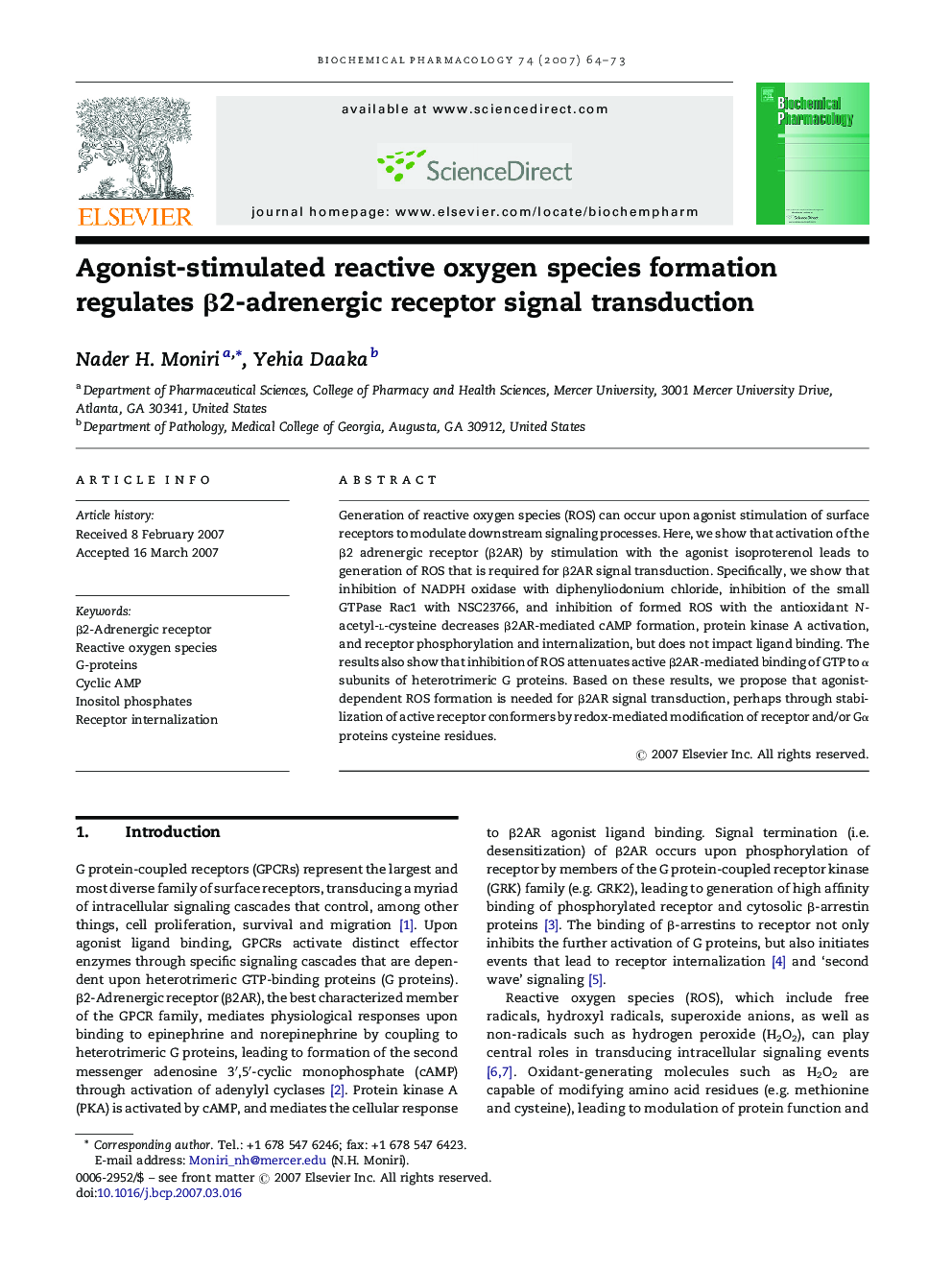| Article ID | Journal | Published Year | Pages | File Type |
|---|---|---|---|---|
| 2515540 | Biochemical Pharmacology | 2007 | 10 Pages |
Generation of reactive oxygen species (ROS) can occur upon agonist stimulation of surface receptors to modulate downstream signaling processes. Here, we show that activation of the β2 adrenergic receptor (β2AR) by stimulation with the agonist isoproterenol leads to generation of ROS that is required for β2AR signal transduction. Specifically, we show that inhibition of NADPH oxidase with diphenyliodonium chloride, inhibition of the small GTPase Rac1 with NSC23766, and inhibition of formed ROS with the antioxidant N-acetyl-l-cysteine decreases β2AR-mediated cAMP formation, protein kinase A activation, and receptor phosphorylation and internalization, but does not impact ligand binding. The results also show that inhibition of ROS attenuates active β2AR-mediated binding of GTP to α subunits of heterotrimeric G proteins. Based on these results, we propose that agonist-dependent ROS formation is needed for β2AR signal transduction, perhaps through stabilization of active receptor conformers by redox-mediated modification of receptor and/or Gα proteins cysteine residues.
